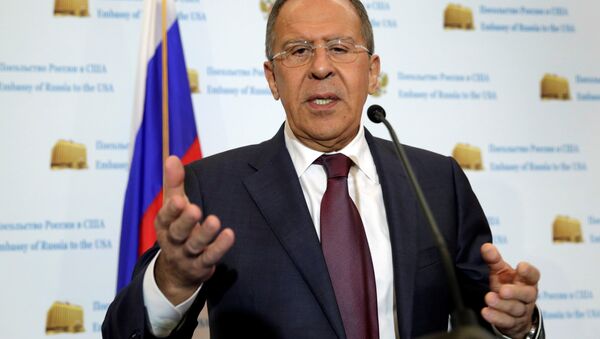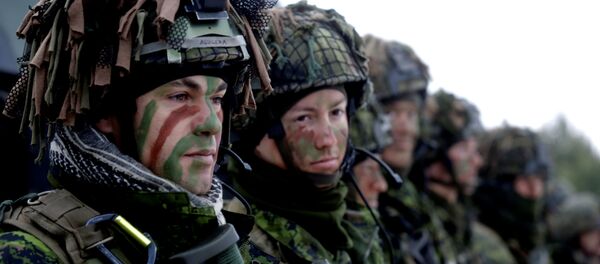MOSCOW (Sputnik) — Provocative policy of NATO, which reflects "NATO-centered" way of thinking among the Alliance's members, is not helping in ensuring trust between NATO and Russia, Lavrov said Friday.
"Blatantly provocative policy, which still remains and reflects NATO-centered way of thinking is bad, it does not help in ensuring good-neighborliness, does not help build trust and decrease concerns, even though we are still doing everything we can even in such circumstances," Lavrov said in an interview with Belarusian media.
According to the minister, Russia has been making attempts to cooperate with NATO.
"When several years ago Russia offered to conclude an appropriate agreement in order to ensure in a legally binding form what the Western leaders were solemnly saying about the necessity to avoid attempts of strengthening their own security at the expense of the security of other nations, we were told 'no'," Lavrov noted.
Lavrov stressed that such an attitude demonstrated that NATO was not confirming its words by practice, only providing security guarantees to the bloc's members.
Relations between Russia and NATO have significantly deteriorated recently, when NATO began to build up its military presence in Eastern Europe, citing Russia's alleged meddling in the Ukrainian crisis in 2014 and the referendum in Crimea. Following the July 2016 summit, the Alliance announced deployment of four multinational battalions to Lithuania, Latvia, Estonia and Poland. Russia has repeatedly claimed that NATO’s military build-up near the Russian borders is provocative and could lead to regional and global destabilization.




